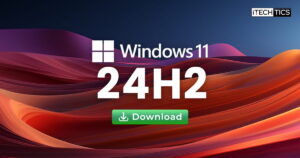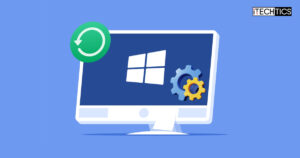Key Points
- The Registry Editor method to resize the taskbar no longer works on Windows 11.
- You can use ExplorerPatcher and Windhawk to change the height of the taskbar.
- To adjust the taskbar height with “Windhawk,” install it, then install the “Taskbar height and icon size” extension, and choose a height for the taskbar from its Settings tab.
In Windows 10, you could unlock the taskbar and drag its top side to any height that you wanted to set for the taskbar. However, this option was not carried forward to Windows 11.
You could reposition the taskbar icons, move the taskbar by tweaking the Windows Registry, make it transparent, and for a time, even adjust its height with another Windows Registry tweak. However, lately, that option has also been removed. Now, creating a new DWORD named “TaskbarSi” and adjusting its value according to the desired taskbar height no longer works.
That said, there is now no native method to resize the taskbar according to your requirements in Windows 11. However, some third-party tools allow you to change the height of the taskbar.
This guide will show you how to increase or decrease the taskbar size according to your needs.
Table of Contents
What will resizing the taskbar achieve?
For some, the default height/size of the taskbar is sufficient for everyday tasks. It allows you to switch between apps and programs, view the date, time, and status of other Windows components in the Quick Access menu, and also show the widgets button. It also leaves ample space on the rest of the screen for the open apps.
However, people wanting more screen space or a full-view space of the plethora of open app icons in the taskbar might want to resize the taskbar. This is how changing the height of the taskbar can help you:
- Making the taskbar bigger will create more space for app icons so you won’t have to expand a small pop-up menu when many icons need to be displayed.
- Making the taskbar smaller will create more space for the rest of the screen where the application windows can now open.
- Adjusting the taskbar to a smaller size will allow you to not go to full-screen mode, where the taskbar disappears while enjoying (almost) the same results with instant access to other app icons.
Resize taskbar in Windows 11 with Windhawk
Windhawk is a free third-party tool that makes it simpler to alter how the operating system and apps behave, including the behavior of the taskbar. You can install the Windhawk app and then continue to download the respective extension to change the height of the taskbar on a Windows PC.
Here are the steps to install Windhawk and then use it to change the size of the taskbar:
-
Press the Windows Key + R to open the Run Command box.
-
Type in “cmd” and press CTRL + Shift + Enter to launch an elevated Command Prompt.
-
Run the following command to install Windhawk:
winget install --id RamenSoftware.Windhawk -
Enter “Y” when asked to agree to the source agreement terms.

Install Windhawk Alternatively, you may also install Windhawk from here.
-
Once installed, launch the Windhawk app.
-
Click “Browse for mods.”

Browse for mods in Windhawk -
In the app, search for “Taskbar height” and then click the Details button under “Taskbar height and icon size.”

Open taskbar height and icon size mod details in Windhawk -
Click Install.

Install the taskbar height and icon size mod -
Click “Accept Risk and Install.”

Proceed with mod installation -
Once installed, switch to the Settings tab.

Open taskbar height and icon size settings -
Change the entry in the “Taskbar height” to adjust the taskbar height and click “Save settings“.
Increasing the number would increase the height/size, and decreasing it would do the opposite. You may also make other adjustments while you’re at it.
Note: The default Windows 11 taskbar height is 48.

Change taskbar height with Windhawk
After performing the steps above, you’ll notice that the taskbar height changes instantly. Note that the icon sizes remain the same, and will only be changed if you explicitly change them from Windows settings or the provided field inside the Windhawk app.

One thing to bear in mind is to keep the taskbar height by the rest of the icons. Having big icons with a smaller taskbar will result in the icons getting clipped at the bottom of the screen.
Moreover, I observed that uninstalling the Windhawk application reverted the custom settings that I applied. Therefore, you’ll need to keep the app installed as long as you want the custom taskbar behavior.
Unlike installing the Windhawk app, it can be uninstalled from the “Programs and Features” applet or the Settings app at Settings > Apps > Installed apps – No special command-line command is needed.
Resize taskbar in Windows 11 with ExplorerPatcher
ExplorerPatcher is another open-source third-party tool used to modify and manipulate Windows components. Here is how it can be used to change the height or size of the taskbar on a Windows 11 computer:
-
Download ExplorerPatcher from here.

Download ExplorerPatcher -
Run the .EXE file to install the tool. No installation wizard will open.
Note that the screen may flicker and the taskbar behavior might change during the installation.
-
Open the app by right-clicking the taskbar and then click Properties.

Open the ExplorerPatcher software -
In the Taskbar tab, select “Small” in front of “Taskbar icon size.”

Change the taskbar size using ExplorerPatcher
You will notice that the taskbar height also changes as you change the size of the taskbar icons with ExplorerPatcher. Unfortunately, this tool does not provide as many size options as Windhawk offers.
Ending words
We have discussed what adjusting the taskbar size does for you and how it can be useful.
Although Microsoft is working on making the Windows OS more customizable with the utmost advanced features, being able to change the taskbar height is one feature that is still present in the older operating systems, but Microsoft did not carry it forward.
Maybe, with the user’s feedback, Microsoft just might restore the option to resize the taskbar in Windows 11, and even carry it forward to Windows 12, if enough demand is generated.







